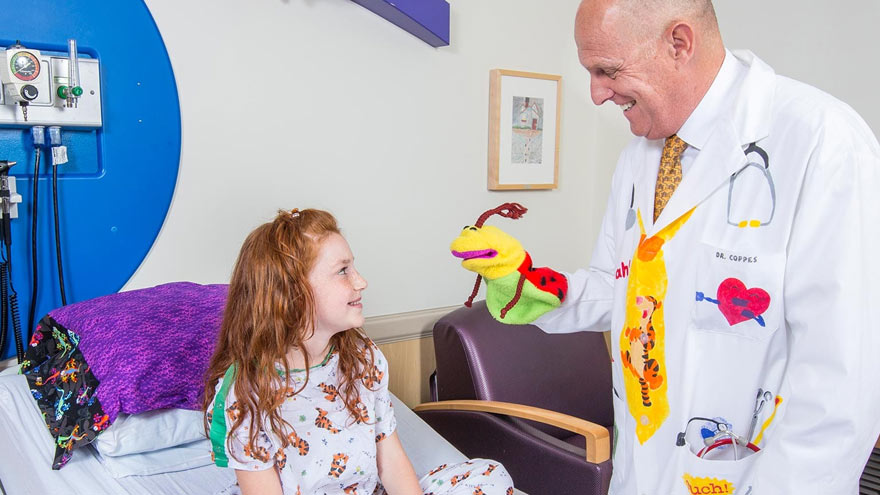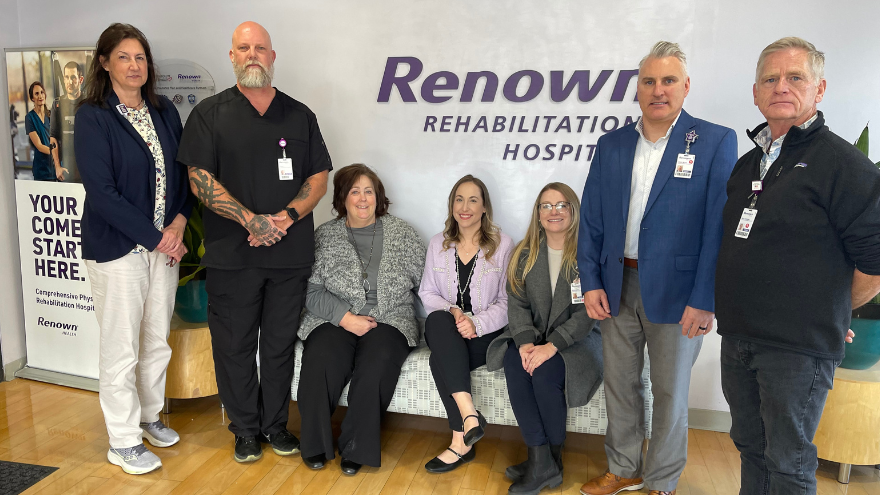Search
Results for 'doctors'
Clear-
Free Virtual Event! Saving Money on Medications
According to a National Center for Health Statistics survey, about 8% of U.S. adults are not taking their medications because they can’t afford them. This means millions of adults aren’t taking their medication due to the high cost. Virtual Event with pharmacist, Adam Porath Thursday, July 23, 11 a.m. to Noon Attend Virtual Lecture 5 Ways to Cut Medication Costs Safely Cost might not be affecting your medication plan, but the following ways to save money on medication can help: 1. Questions to ask your prescribing provider Do I have to take this medication? This is particularly a good question when you’ve been taking a pill for some time and not sure if you should continue. Is there a way to combine my medications? A good example of this is for those who are taking blood pressure medications. Do I have to take this particular pill? Often there are generic choices in the same medication class. Can I get a larger supply? Basically, knowing the cost of a 30- vs 90-day supply is always a good idea. In other words, it could save you time and money. This generally works for medications you take long-term. Remember, asking questions can help you save money on medication, so communicate your concerns. 2. Research online Find the website for the medication and look to see if there are savings and support available through the drug company. 3. Consider a co-pay card Co–pay card programs offered by drug manufacturing companies are a direct way to lower out-of-pocket costs for prescription drugs for eligible patients. The cards can patients pay for the medications they, or their doctors, prefer. If you don’t qualify for a co-pay card, then you can look into patient assistance programs. 4. Consider patient assistance programs Drug companies sponsor these programs by income and they are often hard to find. The best way to find a patient assistance program is by asking your pharmacist. 5. If you’re on Medicare, consider updating your plan Medicare plans can change from year to year, which often times includes the medication they cover and the co-payments or deductible amounts. Annual Enrollment takes place October 15 – December 7, 2020. Most important, review the options and shop around for the best plan. Visit Senior Care Plus for information on Medicare Advantage Plans available to you. Want to ask a pharmacist more questions on how to save on medication? Join us for a Sterling Silver Club virtual event on Saving Money on Medication. To learn more about the Sterling Silver Club, visit our club website.
Read More About Free Virtual Event! Saving Money on Medications
-
Virtual Visits – Healthcare You Need At Home
Virtual visits are basically secure, video conferencing visits with your health provider. Of course if you are sick, you want to avoid going outside of your house. With Renown Health’s virtual visit program, you can now see a provider from the comfort of your own home. As we work to keep all of our patients home and healthy, we’re here for any ongoing healthcare needs you have. There are two easy ways to access a virtual visit with Renown Health. If you need an urgent care visit, you can get in line using your MyChart account You can make a virtual visit with some Renown Health providers you see currently Virtual Urgent Care from a Renown Provider By using MyChart, you can now login and request to “Talk to a Doctor.” After filling in some information and confirming your healthcare concern, you will be put into a virtual line. The healthcare team will notify you by text or email when a provider is ready to talk to you virtually. Virtual urgent care visits are available for all ages. Get To Know MyChart Virtual urgent care visits are available for all ages, and can address: Common cold and cough symptoms Muscular, tendon or joint pains not caused by injury Allergy or sinus symptoms Pink eye Urinary discomfort Diarrhea without vomiting Rashes or skin sores Backache Nail problems Screening examination for sexually transmitted illness (without symptoms) Medication refills (not controlled substances) Symptoms for In-Person Urgent Care Visits Shortness of breath Chest pain Abdominal pain Numbness or weakness of any location that is new Traumatic injuries (including eye injuries or something in the eye) Severe pain of any other body location Dizziness or confusion Bleeding from any location High fever (greater than 102 degrees for all ages) Persistent vomiting Loss of vision Ear pain Substance abuse or psychiatric problems Virtual visits are open 9 a.m. through 6 p.m. Monday-Friday and 10 a.m. to 4 p.m. Saturday and Sunday for Nevada residents. Renown Provider Virtual Visits Many primary and specialty care appointments for adults and children are now available virtually. If you have a provider with Renown Medical Group, call 775-982-5000 to see if you can have a virtual appointment from the comfort of your home. MyChart Assistance If you need assistance with your MyChart account, please call 775-982-6686. For all other questions about scheduling and appointments, please call 775-982-5000.
Read More About Virtual Visits – Healthcare You Need At Home
-
Getting Your Child's Appointments Back on Track
If you’ve been putting off care for your child, know that Renown Health is prepared with updated processes and procedures to ensure safety for you and your little ones. Doctor Max Coppes, MD, PhD, MBA, Physician-in-Chief of Renown Children’s Hospital, is concerned there could be an outbreak of serious illnesses if parents continue to delay getting their children immunized. Dr. Coppes and team understand your anxieties when it comes to visiting your pediatrician, and would like you to know; not only are well visits important to assess your child’s overall health, crucial vaccinations are administered to guard your little ones against disease. Immunizations Immunizations protect children from communicable diseases. Other benefits include: Children that are unable to have vaccines due to age or illness are protected through herd immunity Vaccinations are at given at specific intervals, and missing an appointment may put your child behind schedule Elderly populations are protected where immunity may be decreased Dr. Coppes states, “What we have noticed nationwide, and also in Washoe County, is that the number of kids immunized has gone down by about two-thirds. If that goes on, we’re just waiting for chickenpox, measles, any of those childhood diseases that were eradicated to come up again.” 4 Easy Ways to Schedule an Appointment: Call Us: 775-982-KIDS (5437) Request Appointment Online MyChart Virtual Visits In-Person Wellness Visits/Checkups Maintaining your child’s health is important! Contact your pediatrician to schedule an in-office visit. When you call to make an appointment, you’ll talk to a specialist at our Customer Care Center who will screen you to make sure you and your child have not been exposed to someone with COVID-19, and ensure symptoms of a respiratory illness are not present. Virtual Visits When appropriate, many pediatric appointments are available through virtual visits. Please call 775-982-KIDS (5437) to request a visit with your child’s established provider. All virtual visits require a MyChart account. Don’t have a MyChart account? You can easily sign up online. If you need assistance with your MyChart account, please call 775-982-6686. Virtual visits are able to connect to an ASL interpreter (sign language interpreter), and 37 languages including Spanish.
Read More About Getting Your Child's Appointments Back on Track
-
How to Safely Store Breast Milk
Breast milk. It's often referred to as liquid gold. And fortunately, it can be safely refrigerated or frozen for later use, which can allow you to be a bit more flexible in your new routine with baby. Whether you're getting ready to return to work, planning for the chance date night out or just exclusively pumping, it's crucial to understand the guidelines for proper breast milk storage. Storing Breast Milk Use clean bottles with screw caps, hard plastic cups that have tight caps or nursing bags (pre-sterilized bags meant for breast milk). Be sure to label each container with the date the milk was pumped and your baby's name if the milk is going to childcare providers. You can add fresh, cooled milk to milk that is already frozen, but add no more than is already in the container. For example, if you have two ounces of frozen milk, then you can add up to two more ounces of cooled milk. For healthy full-term infants, milk can be stored as follows: Room temperature - six to eight hours (no warmer than 77°F, or 25°C). Refrigerator - up to five days at 32°-39°F (0°-3.9°C). Freezer– Varies depending on freezer type. Up to two weeks in a freezer compartment located within the refrigerator. Three to six months in a freezer that is self-contained (standard kitchen fridge/freezer combination) and kept at 0°F (-18°C). Breast milk should be stored in the back of the freezer and not in the door. Six to 12 months in a deep freezer that is kept at -4°F (-20°C). Be sure to leave about an inch of space at the top of the container or bottle to allow for expansion of the milk when it freezes. Thawing Breast Milk Place frozen breast milk in the refrigerator to thaw (about 24 hours) then warm by running warm water over the bag or bottle of milk and use it within the next 24 hours. If you need it immediately, remove it from the freezer and run warm water over it until it's at room temperature. Never microwave breast milk and do not refreeze it. Once your baby has started to drink from the bottle, you should use it within one hour. You may find that different resources provide different recommendations about the amount of time you can store breast milk at room temperature, in the refrigerator and in the freezer. Talk to your doctor or lactation consultant if you have any concerns or questions.
-
How to Ease Your Child's Fear of Vaccines
Getting a shot can be scary for kids and anxiety-inducing for parents and caregivers. With flu shot season well underway and children's COVID-19 vaccine clinics in full swing, we wanted to share ways to reduce the stress for you and your child. Plan Ahead and Be Honest A few days before the scheduled appointment, casually mention to your child that you’re both going to the doctor’s office (or vaccine clinic, or pharmacy) soon for their vaccine. Explain to them that this will help protect them and will only take a second. Being honest is important, telling your child that it will hurt for a moment. If possible, try and schedule the vaccine at a kid-specific vaccine clinic, your pediatrician's office or a school-based site. Remember that words are powerful. Take notice if you are using a word that might make them more upset, such as prick, jab, needle or shot. You can interchange words such as vaccine, immunization or injection. Bring Toys Don’t be afraid to let your child bring one of their favorite toys or stuffed animals to the appointment. This can make them feel more comfortable and provide distraction. Ask for Pain Reliever/Numbing Agent If you know from past experience (or suspect) that your child has a needle phobia, talk to the vaccination location ahead of time and ask if they can use a pain reliever or numbing agent before administering the vaccine. Distract. Distract. Distract. Sing a song, tell them a joke, make a funny face. If you can pull your child’s attention away from the needle and make them laugh, they won’t focus all their energy on worrying about the shot. Lead By Example If you haven't gotten your flu shot, COVID shot or COVID-19 booster yet, ask the facility ahead of time if you can also get a shot before your child. Show them that the shot is no big deal and that they will have no problem getting it themselves. Celebrate Don’t be afraid to celebrate this victory with your child once it is over – bring them to the park, go out for an ice cream cone, let them pick what’s for dinner. This reward will show that you’re proud of them for being brave and may also make the next time your child is due for a shot easier.
-
What Does It Mean to Participate in a Clinical Trial?
Participating in a clinical trial is voluntary and a personal choice. Clinical trials are research studies that involve people and are an important part of patient care. What is a clinical trial? Clinical trials are research studies that involve people, and they are an important part of patient care. There are several different types of clinical trials; some are designed to understand trends in a disease or identify better ways to diagnose a condition, while others determine if a new treatment is safe and works when treating, improving or preventing a health condition. There are over 400,000 clinical trials currently being conducted in the United States, and even more across the world. This includes health conditions such as heart failure, cancer, Parkinson’s Disease, respiratory conditions like COPD, common infections, cystic fibrosis, and many more. Clinical trials lead the healthcare industry to new discoveries that contribute to reliable and exact care, improving healthcare quality and saving lives. Clinical trials are conducted by a team of researchers, including doctors, pharmacists and clinical research coordinators. These research teams are highly skilled in their specialty areas, often providing traditional patient care and seeing research patients in the same day. These teams are responsible for making sure the clinical trial is completed correctly, and their patients are their top priority. Why should I consider participating in a clinical trial? Participating in a clinical trial is voluntary and a personal choice. There are many reasons why patients decide to get involved in clinical research. While many clinical trials are designed for patients who have a certain health condition, many studies also ask healthy volunteers to contribute in order to compare health outcomes. Clinical trials are also for patients at all different stages of their diagnosis. Depending on the specific study, the patient may receive access to a new cutting-edge treatment before it is widely available. When patients join a clinical trial, the research team becomes a health partner dedicated to their health and well-being. When patients join a clinical trial, they make an informed decision in their healthcare by weighing all available options in addition to routine treatments. Research participants know that they are contributing meaningfully and helping other patients like them. Where can I find more information about clinical trials at Renown Health? Renown Health’s mission is to make a genuine difference in the health and well-being of the communities we serve. Renown’s clinical trial portfolio offers leading care options to patients in northern Nevada, close to home, in a variety of specialties. Contact the Renown Clinical Research Office for more information on clinical trials available to you!
Read More About What Does It Mean to Participate in a Clinical Trial?
-
What is Heart Valve Disease?
Most people know the symptoms of a heart attack, but what about heart valve disease? We asked Renown Structural Heart Program Director, Dr. Abhilash Akinapelli, to explain more about common heart valve issues and how to treat them. What is heart valve disease? Heart valve disease happens when one or more of the heart’s valves doesn’t open and close correctly, which affects the flow of blood through the body. If left unmanaged, heart valve disease can lead to other complications such as stroke, blood clots or heart failure. There are a few types of heart valve disease, including: Valvular stenosis, where the valve opening is narrowed by the valve flaps becoming thick or stiff. Valvular insufficiency or regurgitation, where the valve flaps don’t close correctly, which can cause blood to leak and go the wrong direction back into your heart. What are some of the signs and symptoms that someone may have issues with their heart valves? Some people with heart valve disease might not feel any different or experience symptoms for quite some time, but if you notice any of the following symptoms, you should call your care provider: Fatigue Shortness of breath, especially when you've been active or when you lie down Swelling of the ankles or feet Dizziness Chest pain Irregular heartbeat If your care provider listens to your heart and notices an abnormal sound or heart murmur, he or she may recommend a visit to a cardiologist who can further test for heart valve disease. Are heart valve issues preventable? There are several risk factors that can increase the chance of heart valve disease. Among them: high blood pressure, high cholesterol and diabetes. These can all be prevented by living a healthy lifestyle through a heart-healthy diet, getting regular physical activity and avoiding tobacco use. A history of certain infections or a history of certain forms of heart disease or heart attack are also considered risk factors, as well as things out of our control, such as age and heart conditions present at birth. So if you or a loved one receives a diagnosis of heart valve problems, what treatment options are available? The Renown Institute for Heart and Vascular Health has many treatment options our heart care team can recommend. In some cases, your doctor may just want to closely watch the heart valve problem for a period. However, other options include medicine, or surgery to repair or replace the valve. Renown specializes in Transcatheter (minimally invasive) heart valve repair or replacement, including Transcatheter aortic valve replacement (TAVR) and Transcatheter mitral valve repair (TMVR).
-
5 Tips to Protect Your Knees from Pain and Injury
Knee pain and injury can restrict movement and make it difficult to be active, but studies show that the right type of exercise can help prevent these issues. It’s no wonder our knees are highly prone to injury. They house a complex network of muscles, ligaments and joints, and are crucial to our agility and daily movements. If you are experiencing knee pain, it’s important to not ignore this message from your body. While it’s fairly common to have occasional aches, if the pain limits your ability to perform normal daily activities like climbing stairs or walking with ease, have a medical professional check it out. “The take-home message here is to listen to your body,” says Amanda Henriques, PT, DPT at Renown Physical Therapy. “We are all built differently and respond to exercise in different and unique ways. Running may feel great for one person, but always lead to injury for another.” At any age, it's important to protect and strengthen your knees to help prevent pain and injury. Here are five tips from our experts: 1. Strengthen your muscles Choose exercises that focuses on the muscles around your kneecaps, hips and pelvis and places extra emphasis on your core. These muscles will absorb some of the stress places on your knees, helping them stay balanced and stable. 2. Maintain a healthy weight Each pound of body weight produces five pounds of force on the knee. If you need to shed weight, start with low-impact activities to avoid increased stress to your joints. 3. Pick the right exercise Opt for exercise that put less stress on your knees, such as cycling, walking or swimming. Choose flat surfaces when walking for exercise and avoid activities that put extra stress on your knees, such as deep knee bends or downhill running. 4. Warm up before working out Don’t overdo the workouts in length or intensity, and stretch after exercise to help prevent injury. 5. Avoid high heels Wear shoes with good arch support specific to your choice of exercise that provide a stable base for your feet and legs. Replace running shoes every 300 to 500 miles. Other athletic shoes should be replaced after 500 miles of wear. These tips can help keep your knees strong and prevent injury. But if you experience an accident or trauma, seek medical attention and follow up with any rehabilitation recommendations you receive. Depending on the injury, your doctor may recommend physical therapy, where you will be guided through individualized exercises to strengthen and heal. “If you listen to your body and take the appropriate preventative measures, you can find the right type of exercise to keep you happy, healthy and fit for life,”
Read More About 5 Tips to Protect Your Knees from Pain and Injury
-
Baby's Ears and Altitude Changes
One of the best things about living in the Reno area is the beautiful mountain range that surrounds our city. Many families take advantage of the activities the mountains have to offer or travel over them to visit friends and family in neighboring areas. However, for parents of infants there is often angst over your baby’s ears and altitude changes and the associated potential for ear pain and/or “popping.” Fortunately, there are things you can do to protect your infant’s ears the next time you drive over the mountain or hop on a plane with your little one. Baby’s Ears and Altitude Changes: What Causes Them to “Pop” The simple answer is pressure. The problem originates in the middle ear where there is an air pocket that is vulnerable to changes in pressure. The Eustachian tube, which runs behind the nose to the middle ear, is constantly absorbing and resupplying air to this pocket to keep it balanced. When the pressure is not balanced, your ears feel “clogged” or like they need to “pop.” In some cases this sensation can cause significant ear pain and even temporary hearing loss. Rapid changes in elevation or altitude, like driving over a mountain, or ascending or descending on an airplane, can cause rapid changes in pressure. In order to avoid problems, the Eustachian tube needs to open widely and frequently to equalize those pressure changes. The problem often intensifies during descents as you go from an area of lower atmospheric pressure to an area of higher atmospheric pressure. This is why you hear babies screaming on planes during descent or why your infant is wailing in the car seat as you head down the mountain. What can you do to make it a more comfortable trip for your child? First, be prepared. Babies cannot intentionally “pop” their ears like adults can, but we can help them by encouraging them to swallow. Offer your baby a pacifier or bottle while making ascents and descents. If possible, it may be helpful to have an adult ride in the back seat with baby if you’re in the car to ensure this can happen. Don’t let your baby sleep during descent on a plane. Help your little traveler out by offering him or her a pacifier during this process, as descent is the most likely time for pain associated with altitude changes. If your baby is congested prior to travel involving altitude changes, seek the advice of your pediatrician since they may have other solutions, including medications such as decongestants. If you return from a trip and notice your infant is still fussy and uncomfortable, contact your child’s doctor for a thorough ear evaluation. Safe travels!
-
Department Spotlight: Transitional Care Coordinators
Transition into the new year with our Transitional Care Coordinators at Renown Rehabilitation Hospital! As a patient, your healthcare journey may seem overwhelming and confusing. Add a significant injury to the equation, and now you potentially have a rehabilitation detour on your road to recovery. Then you have to think about what happens next after you head home? In-home physical therapy? Home health? More rehab? There are many questions to answer about the next steps in your journey. Enter: Renown Rehabilitation Hospital’s Transitional Care Coordinators (TCCs). As a rehab patient’s key support in the transition from hospital to home, this department ensures everyone on a patient's care team has the best information to deliver care after discharge while remaining in constant communication with the patient and family to meet their unique health needs. At the Right Time, In the Right Place The role of our Transitional Care Coordinators at our rehab hospital is exactly what it sounds like: helping patients transition from a hospital or rehabilitation setting back to their home or a lower level of care. Every step of the way, these experts are laser-focused on making sure patients continue to receive the support they need during this key transition period. "The main goal of the Transitional Care Coordinator is to get the patient to the appropriate level of care at the right time and the right place,” said Marty Ackerman, Senior Transitional Care Coordinator. “Our day involves collaborating between the inpatient physiatry team, consulting team and attending team at the acute level, as well as the discharge planning team. We work with the patient’s family to come up with the best plan of care, whether it’s home health, inpatient, outpatient or acute care. Day to day, we see about 20-25 patients.” Once a patient is released to go home after rehab, our Transitional Care Coordinators ensure each patient is properly set up with physical, speech and occupational therapy in an outpatient setting or at home. Working closely in tandem with the TCCs, the Discharge Planning Assistant sets up transportation, equipment and more. “I start by listening in on our morning meeting to see who we might bring in, what the doctors say and what the rest of the team thinks in regard to seeing if a patient is appropriate for care at Renown Rehabilitation Hospital,” said Emma Van Patten, Discharge Planning Assistant. “I work closely with case management, so if any patient needs discharge equipment to safely get around, such as a wheelchair or a walker, I will order it from a durable medical equipment (DME) company or home health if the patient needs more assistance at their house when they leave. I set up transport for all the hospital admits and make sure everyone gets their equipment on time before they leave.” The reach of the TCCs goes beyond hospital walls. In fact, their reach even goes beyond state lines and country borders. If a member of our community is injured and wants to come back to Reno for treatment, our TCCs will work with teams around the world to make that a reality. "Recently I was able to help a member of our community, who was injured in California, come back to Reno and undergo rehab here,” said Sharon Trimmer, Transitional Care Coordinator. “It was a collaborative effort with the team that we got the referral from in California, working closely with insurance companies, working with doctors here, coordinating the transfer back from California – it was all especially rewarding. The patient was so grateful to be back home.” "I love it when we work with these externals and get them back home,” added Marty Ackerman. “It is really quite an accomplishment. A patient can be in Europe, Asia, anywhere – we will help them. I was able to admit someone from Latvia by working with a global travel insurance company. We got medical records transcribed from Russian to English, and the patient’s family was very helpful with the translation.” Thanks to the above-and-beyond efforts of the entire team at Renown Rehab and the best-in-class level of care they provide, our rehab hospital has been nationally recognized. And this award will certainly not be the end of the accolades the hospital collects. "Becker's Hospital Review recently ranked Renown Rehabilitation Hospital as a top rehab facility in the state of Nevada and the U.S.,” said Marty Ackerman. “This was a very proud moment for us.” “Every day is different. Each day we continue to experience new situations and challenges,” added Sharon Trimmer. “I appreciate the help of the team members who each bring unique perspectives and experiences to problem solve for the best outcomes. I love the opportunity to continue learning on daily basis.” Our Transitional Care Coordinators would like to emphasize to readers that anyone is more than welcome to come to Renown Rehabilitation Hospital for a tour. They look forward to sharing what they do with our growing community.
Read More About Department Spotlight: Transitional Care Coordinators
-
 Renown Institute for Heart & Vascular Health - FallonRenown Institute for Heart & Vascular Health - FallonHours
Renown Institute for Heart & Vascular Health - FallonRenown Institute for Heart & Vascular Health - FallonHours
Mon-Tue8 a.m. - 4 p.m.WedClosedThu-Fri8 a.m. - 4 p.m.Sat-SunClosed -
Heart Attack Survivor Fights the Good Fight
Something wasn’t right. Even though it was the holiday season, on December 23, 2018, Mondo Corona didn’t feel good…not to mention his sudden earache. Although Christmas was a happy celebration with his family. He still felt tired. Was it the flu? And that darn earache wouldn’t go away. On that cool winter day, Mondo could not imagine he was near death. Or that he would become a heart attack survivor. Know Your Heart A few days later, on December 27, he wasn’t feeling any better. He decided to go to the emergency room at Renown Regional Medical Center. That’s when a simple blood test revealed shocking results. “I thought about death a lot. I was calling people to ask them to help take care of my family if I wasn’t going to be here anymore,” he emotionally confesses. Although Mondo loves his job as a railroad engineer, it involves on-call shifts and an erratic sleep schedule. At that time his exercise and eating habits weren’t the best either. Yet he never imagined he would have a massive, often lethal, type of heart attack called ‘the widowmaker.’ In fact, his family had been concerned about his health for awhile. “He worked so much and he didn’t take care of himself and he didn’t exercise – he was burning the candle at both ends,” shares his wife, Alison. His daughter Justice, an avid exerciser, was always encouraging him to join her at the gym, but could never quite convince him. Mondo remembers the time before he became a heart attack survivor. “I didn’t have any exercise whatsoever in my life. At that point my eating habits were just terrible,” he shares. He went to the emergency room due to his earache, but nothing was found until one of the doctors ordered some tests. Specifically blood work showed high troponin levels. Troponin is a blood protein often released in large amounts when the heart muscle has damage, sometimes by a heart attack. Heart Attack Survivor “My surgeon came in and told us that it was going to be a triple bypass – that three of the four…major arteries were clogged 100 percent,” Mondo explains. Amazingly his heart was pumping on only 10 percent blood flow. Heart surgeon, Joseph Brandl, MD, told him he survived a widowmaker heart attack. This type of heart attack happens when there is a 100 percent blockage in the critical left anterior descending artery (LAD) of the heart. Frequently the symptoms can often be mistaken for the flu. According to the Centers for Disease Control and Prevention (CDC), every 40 seconds a person in the U.S. has a heart attack. And 1 in 5 heart attacks are “silent” – meaning you can be a heart attack survivor, but not know it. For Mondo’s children, seeing their strong father struggle after heart surgery was difficult. Justice tearfully shares, “It was really hard seeing him so vulnerable. He really needed anybody’s and everybody’s help at that point.” A Heart Attack Survivor Program After leaving the hospital on January 5, 2019, he was extremely weak. On February 12, Mondo began Renown Health’s Intensive Cardiac Rehabilitation (ICR) Program called the Healthy Heart Program. This program, requiring a doctor referral, includes 12 weeks of supervised exercise along with nutrition education and stress management skills. In spite of heart disease being the leading cause of death in the U.S. – more than all cancers combined, the risk can be lessened with daily lifestyle habits. Mondo credits the ICR program with motivating him and getting his focus back on his health. He saw the team members setting an example and also caring about his health. He describes one of his favorite recipes, “In ICR Sara showed us how to make this incredible fruit salad, with jicama, watermelon, grapes, oranges, red onion, and ginger!” Of course, the recovery process was not overnight. “It did take a long time to really realize that he was going to be back to normal, that he was going to be okay and that he was going to be that strong provider for me and my children,” Alison reflects. “Mondo’s had an amazing outcome and he’s not limited in his activities at all and should hopefully have a life that’s not limited at all from heart disease as we’re monitoring everything and everything’s looking good,” reports his heart doctor Jayson Morgan, MD. Mondo describes his care experience being a heart attack survivor as life-changing. “The care teams at both Renown and ICR were incredible. There wasn’t a single person we came across who didn’t immediately become a part of the family. They truly cared for us, all of us, including the extended family that came to visit. They were informative and supportive. I felt like I created lasting bonds with so many of them, especially the gang in ICR. What amazing people.” Lynice Anderson, Director of Intensive Cardiac Rehab, Healthy Heart Program, shares,” Mondo is one of the most genuine, thoughtful and humble people I have ever met. His love for his family is palpable. His impact on me personally and our team is forever.” She acknowledges family support is key to his success, “Mondo’s family is his rock and they are his. I have never met a family that was so ‘all in’ in the support of their loved one. His new heart healthy lifestyle is modeled through his family every day.” Fighting The Good Fight Of course, Mondo may look familiar to you. That’s because he is featured in Renown Health’s “Fight The Good Fight” brand campaign. For this reason, you may have seen him in advertising working out on a treadmill, shirtless, with his open heart surgery scar in full view. When asked how he feels about showing his scar he confidently says, “I don’t mind showing it to people. I don’t. I earned that scar.” He is a proud heart attack survivor. Today, he’s grateful to be alive and takes his health commitment seriously. “Things have a different feel now. The skies and lakes are bluer and the trees greener. My family is so much more a part of my day. We go on so many more outdoor adventures, trying to incorporate a little exercise into our fun. We watch what we eat more and are trying to teach our children and loved ones about healthy choices. And I think with a few we’ve even been successful!” he observes. “Don’t take life for granted.” “Unconditional love. I get nothing but support from my family without them I wouldn’t be where I’m at. What happened to me definitely makes me a fighter for sure. I’m fighting for my life – the good fight – I think life is good,” he adds.










